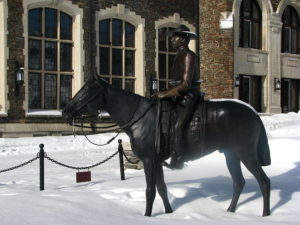Chapter 44: Berries
Counting Nocome, I now had fourteen people rattling around in there. Plus Chester.
Depression alone wasn’t good enough for the new people in Barrie – otherwise I could have swept through the city for a full stomach every night for a week. I resolved at sundown that I needed to see physical, medical signs of a hopeless existence before making my requests. It was unfair to those who didn’t show their pain, but it kept mistakes like what had potentially happened with Karl Ruckert from recurring.
My requests didn’t have to be made in the room with the deceased anymore – I was getting better at the psychic shout thanks to the clash with Nocome during the fast, and could call in from outside through doors and windows. If the answer was yes that was basically an invitation for me to enter the premises. Tutelaries big and small, Jewish or Muslim or Christain or older or younger, wouldn’t touch me once the permission of the dying was granted. Thankfully I wasn’t dealing with any of the more asshole tutelaries who will insist on keeping people alive to the gasping, senile, bank-account-draining, paralyzed end whatever the victim’s wishes.
I have never been great with names or faces, and at this point the people in my head wouldn’t be as well known as the first few human meals, especially not when they came together in a rush. I’d develop a better sense of these people later, only skimming summaries of their lives for now.

In the grip of Parkinson’s disease, a former plumber named Casey Eliot Durant was dealing with a host of family drama of the kind that is very routine but often disguised (even by the victims) when someone is at their end. The extended family was coming out of the woodwork as the last weeks drew near, saying who had what and what needed to be signed, what accounts were open and how much should be in there, making their little pre-emptive arrangements. It was all ugly shit – they might start accusing and suing each other once the man’s heart stopped, but that was nothing to me. Or Mr. Durant, at this point – he’d grown disgusted with almost everyone. Sure, he wanted out.
Dr. Adil Bashir was next, an ex-pediatrician. Immigrating from Egypt in the 1990s, his degree was not recognized in Canada, so he had pushed loads around warehouses for a while, eventually mastering English and working for certification here, in time qualifying as an OB/GYN as well. His karmic reward for basically becoming a doctor twice-over and pulling so many kids into the world was to be paralyzed from the neck down by a car accident within sight of scheduled retirement. He’d had enough.
Then there was Rachel Montgomery: another lingering fentanyl victim in the Hospice Simcoe, only in her forties. Her coma was deep, and I couldn’t shake much more out of her than shame and self-hatred and the desire to escape, her agreement terribly desperate.
The other man in the hospice who was incredibly miserable still wanted to live after his stroke, cringing away from my intruding voice, so I moved along, gliding around the small circles of light cast by streetlights.
It wasn’t far to the Royal Victoria Regional Health Center, a general hospital where I collected an old man who had fallen down a flight stairs at home, with major brain bleeding and not a single hopeful thought in any of the staff around him. The bruised face lost all its swollen colour as I fed from the wrist, assimilating the essence of Paul Massie, a radio DJ who had ‘kept it local’ all his career. A name for thirty years in Newmarket and Barrie, Massie had come to wider attention just once as part of the ‘Jocktober’ segment on the Opie and Anthony show, in which his show and performance and co-hosts were thunderously smashed for every little cliché and bit of corniness.
After Mr. Massie, I found a lesser signal of lingering misery in the general hospital, down under the street in what was an effective ‘drunk tank’. Here I noticed that the hospital’s fussy tutelary that I had compared to Nurse Ratched made no efforts to hover over my shoulder, letting me inspect these rooms on my own until I found the source of the psionic groaning curled up in a corner. The homeless man was hugging himself and rapping his knuckles against his forehead, looking like one of van Gogh’s last paintings. Now I needed all of Nancy Belmont’s powers at organizing scattered records, for this fellow to be let in and then let out regularly by the hospital was schizophrenic.
(… to devour the poor from off the earth, the needy from among mankind … well, maybe that was our mission from the big guy upstairs)
Slurp. Inside my skull the schizophrenic hobo would have to have a better name than ‘Gumball’. (Nancy quickly determined that the nickname had actually been given based on a comparison to the town drunk Barney Gumble in The Simpsons). Gumball didn’t bring much of a resume to the inner army, but if schizophrenia was purely a hardware defect we’d see if he enjoyed my mind any better.
I zipped away after absorbing the two old men in the hospital, smashing the drunk tank’s door open – I was an emergency responder now, and I had a suddenly urgent call several blocks away, a dingy private home basement where another drunk was sliding off the furniture onto the floor. This man already had three cuts in his wrist from a shaky rusted razor blade, so there was little point in asking and no point in biting.
How many suicides in a big city like Toronto … that alone would be enough, though the long-term effects couldn’t be good for me …
While I considered this, I mechanically absorbed the suicidal fellow – I was starting to do this like it was my job. His name was Jeremy Ardagh: a man in his sixties with no one to miss him, ending it all in a squatter’s squalor. Part time chef, once a bouncer, once a lot of things – including a burglar and drug dealer in the States.
Two hours before dawn I was rejected once more by a trucker eying a gun in a dark motel room near the highway – I think I freaked him out enough to send him back to Jesus. I had ruled out depression alone earlier, but depression was most of the signal I chased and I needed to actually examine the situation closely to know what was around it. I wasn’t sure that I could take the full essence including mind contents from a corpse – a dying man like Mr. Ardaugh worked, but a man with a bullet in his cooling head?
Only one more left in Barrie tonight, looking at the wall or the sky and wanting it all to go away … and it was someone younger that Alexanne Floros, not even a teenager. What was wrong with this kid?
Dr. Bashir was oriented enough to tell me very quickly. “Juvenile Tay-Sachs. This case was after my time, but I heard about it. Very sad.”
The kid wasn’t actually looking at the wall or the sky because he was blind – he couldn’t remember not being blind. His moving options consisted of leaning to the left or to the right in his chair or trying to roll in his bed, and just after his eighth birthday Daniel Fairstein had noticed that his hearing was vanishing. Without music he couldn’t imagine enjoying anything, or wanting anything. He pretended to still hear normally, bouncing his head or making his sing-along noises, so that his parents thought things were okay. But he thought it wasn’t working anymore and he was very sad that they had found out that he was going deaf. He blamed himself for not faking it well enough.
Once again, I felt the people already in my head rising to attention like a troop of meerkats.
“Awww! C’mon, get him out of there!” Alexanne insisted.
“Wait,” Simon asked, “are you really going to kill and drink an eight-year-old?”
Allan Beilski was half-objecting. “Aren’t they coming up with new cures all the time? Maybe if he can live long enough he’ll get one of those electronic ears or eyes they’re always testing-”
“Hey dybbuk!”
We were interrupted by the Farstein family’s tutelary, a Dr. Seuss-looking thing that had opened the window for me and directed me toward the bed in question.
“You can’t do anything when the sun rises! Chop chop!”
“Fine – do I get you too, or do you stay with the house?”
The tutelary grinned. This was the most ‘toonish’ of all the little guarding spirits I’d encountered so far, barely having a third dimension. I didn’t have a reflection, but this thing didn’t have a shadow. It was sort of like that elf in one of the Harry Potter movies, a pointy-nosed thing less than three feet high wearing a simple smock, though it was closer to a drawing of that elf made by a child’s crayons.
“I’m his, so I come with him.”
Understanding came with the blood as I extracted Daniel Fairstein from his degenerating body. The tutelary’s form was the work of young Daniel in his very early days when he could still watch movies – he had created this imaginary friend, and named it Buddy. It didn’t seem to have an ‘original’ undead human inside acting as a parasite feeding off the kid’s emotions – so this was a tulpa, a non-human thing made by the child. Chester might have been the same type of being, created by young Allan Beilski with no previous existence.
The sky was lightening to the east when I left the Fairstein house with a noisy head, and the beginnings of one terrific hangover.

Dawn on September 10th came with a pulse of cold wind across Barrie, announcing that summer was officially over. An officer driving past Barrie’s Centennial Park on the waterfront of Kempenfelt Bay stopped his vehicle to examine a suspected homeless or drunk person collapsed on a bench. The man he saw had wildly twisted hair approaching his shoulder and well-traveled, crinkled clothing.
“Are you just enjoying the view, sir?”
I barely looked at him. “No, we’re still collating.” That was Ash, from the original Alien. I was reconsidering the ‘quality’ of the people I had collected, wondering if they would be as useful against Nocome as the humans on the Nostromo against their unwanted guest.
I don’t think my broadcast range is that great right now, but could the Barrie cop tutelary get off his ass and move this officer along?
The patrolman was a young clean-shaven man, not yet forty, and he looked like a jogger. He didn’t seem to be overly aggressive or demanding, but there was still a problem: if he decided to take me in he would put me in the back of his police car, get in the driver’s seat, and then notice that he couldn’t see me when he checked in the mirror. And I wouldn’t blame any human with a gun for having a nasty reaction. Since alarming stories like that were rather rare in the human world I assumed that some tutelaries were keeping these encounters from happening – or maybe most vampires weren’t stupid enough to overeat and then collapse for a nap in a public place during their weak hours.
“Excuse me?” The patrolman seemed merely perplexed.
“Sorry, sorry, I’ll handle this.” Someone was clomping over to us.
The patrolman turned in surprise, and dawning alarm, and then froze. I cranked my neck to look over my shoulder, and I saw a translucent man on a translucent horse mounting the curb from the street to enter the park. The rider’s uniform was supposed to be red, of course, but both man and horse were in black and white as if emerged from an old photograph. And he’d come in saying ‘sorry’ like every American’s image of a good Canadian RCMP officer.
The living lawman unfroze, almost collapsed, and then walked through the apparition back to his car and his coffee on the edge of the park, not looking back, surely with a blank look in his eyes; the deceased lawman, still on his ghostly horse, walked through the bench and turned his mount around to get a good look at me.
“I knew you wouldn’t have started anything on a full stomach at this hour, but I should’ve thought of that mirror business,” the old Mountie said. “Jumpy kids with their guns.” The spirit had an extra frown on his face as a thick mustache, with sharp cheekbones – he looked like he had eaten little on the frontier for long stretches at a time, many years ago. I noticed a tiny white star on the apparition’s left temple, and remembered Bethune’s enduring cut on his finger – the Mountie retained the mark of the bullet that had killed him.
“I plan to be leaving soon.”
“By road?”
The ghost horse snorted at me – I didn’t feel anything, the manifestation’s snot vanishing as it left the nostrils.
“Can’t by road. Every cross or wreath set down for an accident will halt me.”
The Mountie scratched his chin. “I can give you a pass for the road – if I can collect a vow from you, for the sake of all men and women in uniform.”
“All officers for all roads?”
“From the normal wards, which is almost all of them. If some Catholics have put down roots those restless might be able to still block you, but out of Quebec you should be fine. And the Injun restless don’t care for roads at all, none of them should bother you.”
“So you’re part of the secular restless?” I asked.
“Indeed I am, I guess,” the Mountie said, leaning forward conversationally. “Though we’re all just as confused about what’s really true as in life. There’s Chinamen restless out west, Eskimo restless up north. But secular’s too big a word. I’m one of the protect-and-serve restless. Mostly cops and soldiers – we’re probably the most organized restless you’ll find.”
“If I get on a highway named after a veteran, what happens?”
“Just keep off the roads on November 11th each year, and your vow to me will grant you access for the rest of the year. That vow will also let the boys guarding the memorials know that they don’t have to kick you into the dirt on sight. I take it you’re agreeable? A handshake will do it.”
I got up, poking at the horse’s head with no effect, then reaching out my hand. “Absolutely. I’m tired of walking.”
“Well,” the Mountie’s ghost said, “I’m jealous of the kids who get to haunt the earth on motorcycles.”
Chapter 45: Exercise and Recruiting
Image credits: SORG Rollstuhltechnik GmbH+Co.KG, Bill Burris
